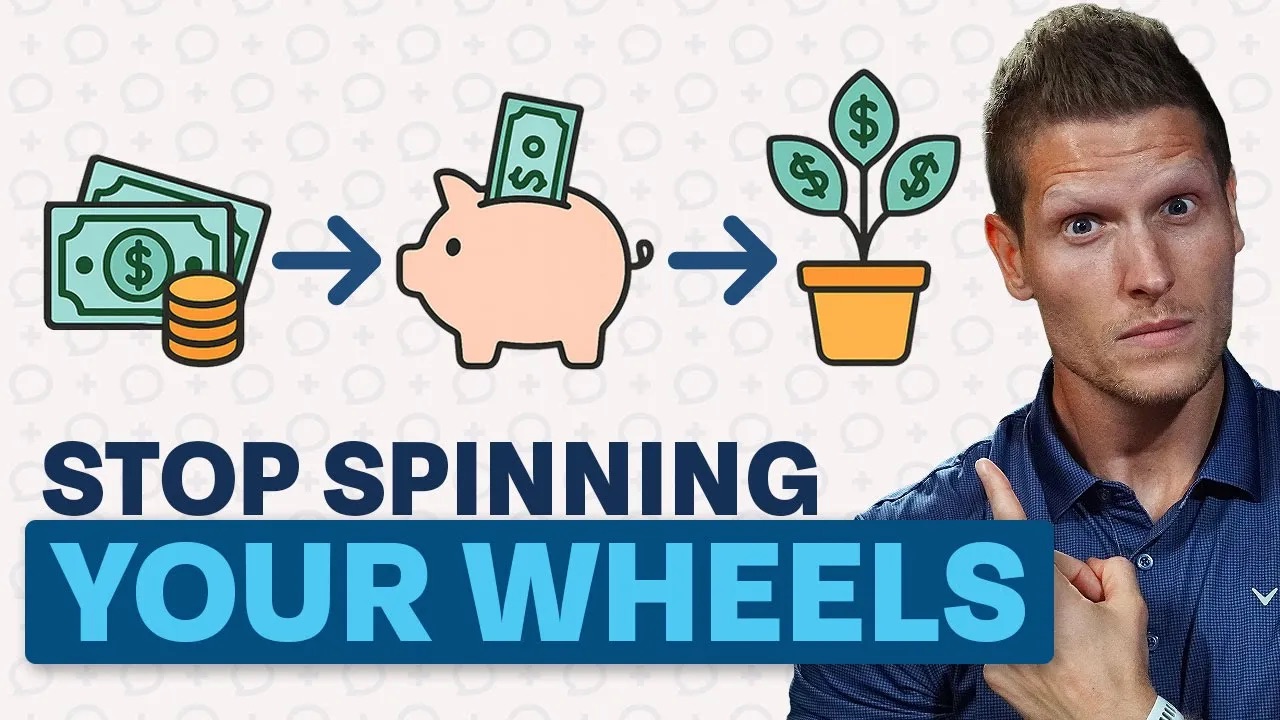This question is from Matt C. He says, "With a low rate on the mortgage, what are the best options for funding improvements to our current home to accommodate a growing family? He's thinking of doing this versus buying a new home at a higher interest rate, which, you know, then maybe it wouldn't be in that 25 percent of the gross income range that we talk about."
Yeah, my wife and I have had some of these same conversations. Right. One of the things that's really, really interesting -- oh man, it wasn't you who told me the stat, Brian, that right now 99% of homeowners have a current mortgage rate lower than the current rate. Yep, 99% of homeowners. That's mind-boggling.
Well, until the ability to move is going to be difficult, right? A lot of people are going to say, "Man, I've got this mortgage at two and a quarter, three and a quarter, three and a half, four. No way am I going to move into a new home because then I lose that good mortgage and now I'm up at this." So somebody said, "Well, I'm just going to improve my current house." Well, if I don't have cash to do that, I've got to find a way to borrow money, or I need to save up to do that. It is hard because, again, I have a good friend right now. He's about to do some big improvements at his house. He just got quoted for a home equity line, right? He's going to borrow against the equity of his current home, but it was prime plus zero. So, I want to say it was like seven percent, 7.2 percent.
So, if I am someone thinking about doing improvements, you know, how creative should I be? I mean, obviously, there's saving cash, right? Like, I just save up and pay for it in cash. I could take out a home equity line, you know, I could borrow against the equity of my current home. I could probably do like a mortgage margin loan if I have a brokerage account and I didn't want to liquidate brokerage assets. I mean, what's the answer here? What's the thing that people should think about when it comes to improvements? And is your answer, Brian, that not all improvements are created equal?
Right, you've totally read my mind because I wrote down three quick things. And I'll just go ahead and tell you these three, and then I'll get into each one. I put "the what," which is, what are you improving? Because we know historically kitchens are a good investment, master bathrooms and things like that, or closets. Those are positive things. And I would also, the what, make sure when you do improvements that you don't give yourself some false sense that when you put the fancy... I'll give you a perfect example. We're looking at redoing our master bathroom, and I remember when we built our house, my wife had to have these bump-outs for the master bath, and then these furniture legs at the bottom of the thing. And then now that she's talking to these tradespeople, she's like, "No, we gotta replace all the cabinets." And I'm like, "Well, we can't just paint them, I mean, because no, the new style is flat is good, you know, it's changed over time." So, whatever you do, a project, make sure that you're not putting something so custom or so trendy that you lose that value. Because that's something that I think a lot of us fall prey to when you're redoing.
You make sure it has some market value to the masses, not just personalized to you. Because I've seen some of the houses in our neighborhood that have sat the longest or were the most customized, special. Yeah, they were just different, you know? And so, people, when they came in, they couldn't put their own vision to what it was. So, the "what" matters a lot. Don't go spend money on stuff that's not going to have value for you.
The second is the timeline. I would tell you, if you're thinking about how you're going to pay for this, go ahead and create the timeline of how long you will benefit from this. If you're going to be in the house long-term, but also, knowing your income and your cash flow situation, is this while we're in this high-interest rate environment right now that you could pay this off in three years? If you could cash flow for five years, what's the timeline? Figure that out, because I think that's important. Once you know the "what" and you're measuring twice, on him, you actually get long-term value out of this. Then, think about the timeline of how fast you could pay this off.
You can then move to the product or the ability to do this, and that's where you can consider a home equity line, a home equity loan. You can consider different ways, like margin loans. There are ways or just straight-up cash flow. You wait to wait a year and a half to do it because you save up enough cash to do it. Once you have those first two questions answered, I think you can move into step three, which is if you can pay it off fast enough, the higher interest rate on some of the loans might not hurt you as much because you're paying it off within 24 months. But it also might lead you to say, "Hey, well, heck, if I can save this much money, can I pay for it as we go? There we go, by just cash flowing it." You know, that all needs to go into consideration.
Buying a home is a huge financial decision, that’s why we created our
Home Buying Checklist! This checklist will help you ensure all of your ducks are in a row before making a huge financial decision.













